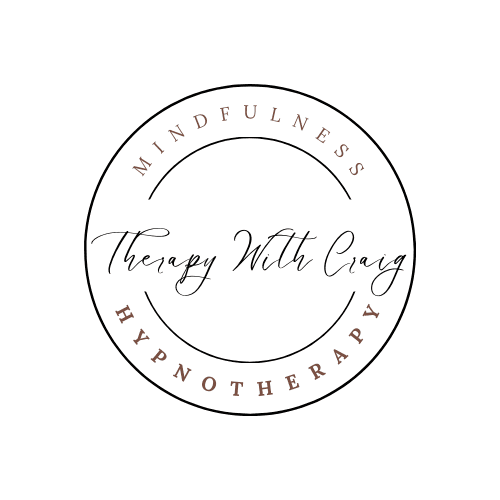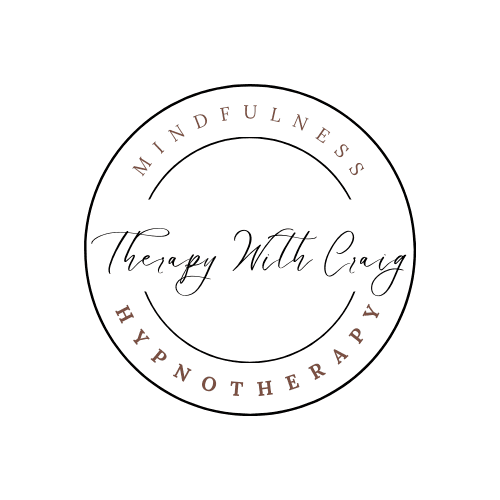
Welcome to Hypnotherapy for Gambling
Craig Fookes, Clinical Hypnotherapist and Mindfulness Instructor
Learn More about Hypnotherapy For Anxiety
What is a Gambling Addiction?
Gambling addiction, also known as pathological gambling or compulsive gambling, is a behavioral addiction characterized by a persistent and uncontrollable urge to gamble despite negative consequences. It is a type of impulse control disorder that can have a significant impact on an individual's personal, social, and financial well-being.
People with gambling addiction may experience a range of symptoms, including:
Preoccupation with gambling: An individual may spend an excessive amount of time thinking about gambling, planning their next gambling session, or recalling past gambling experiences.
Inability to stop: An individual may be unable to control their urge to gamble, even when they have made a conscious decision to stop.
Increased tolerance: An individual may need to gamble more frequently or spend more money to achieve the same level of excitement or satisfaction.
Withdrawal symptoms: An individual may experience symptoms of withdrawal, such as anxiety, irritability, or restlessness, when they try to stop gambling.
Negative consequences: An individual may experience negative consequences as a result of their gambling, such as financial problems, strained relationships, or legal issues.
The causes of gambling addiction are complex and may involve a combination of biological, psychological, and environmental factors. Some risk factors for gambling addiction include a family history of addiction, a history of mental health problems, exposure to gambling at a young age, and a lack of social support.
What is Hypnotherapy For Gambling Addiction?
Hypnotherapy is a technique that can be used to help individuals overcome a range of issues, including gambling addiction. Hypnotherapy involves inducing a trance-like state in which the individual is highly responsive to suggestion. During hypnotherapy for gambling, the therapist may use a variety of techniques to help the individual change their thought patterns and behaviours related to gambling.
Some of the techniques that may be used during hypnotherapy for gambling include:
Identifying triggers: The therapist may work with the individual to identify the situations, emotions, or thoughts that trigger their urge to gamble.
Visualization: The therapist may guide the individual through a visualization exercise in which they imagine themselves free from the urge to gamble and experiencing positive outcomes in their life.
Anchoring: The therapist may use anchoring techniques to help the individual associate negative feelings with the urge to gamble and positive feelings with abstaining from gambling.
Reframing: The therapist may work with the individual to reframe their thoughts about gambling and its role in their life.
Hypnotherapy can be used as a standalone treatment or in combination with other therapies such as support groups.
It is important to note that hypnotherapy is not a magic cure for gambling addiction and that the individual must be motivated and committed to making positive changes in their life.
What Causes Anxiety?
My personal belief is the biggest factor in determining if someone will develop an addcition in later life is their psychology:-
- how they think about things
- how they think about themselves
- how they think about their relationships
- how they think about the future
- also, the experiences that they have had over the course of the lifetime
Read More About Hypnotherapy For Gambling Below
Or if you would like to get in touch, please click the button to contact us
Hypnotherapy provided in a comfortable, inviting, and homely setting in Colchester, Essex
Learn More about Hypnotherapy ForGambling
There have been some clinical studies in to the efficacy of hypnotherapy for gambling. Which you can see some information on below.
It is important to keep in mind that these are clinical studies so the hypnotherapy would have to be the same for each individual to ensure that it was an accurate scientific study.
All hypnotherapy for Gambling Addiction with myself, is always entirely unique to you and your experiences. You can read reviews of my work here
There have been several studies on the effectiveness of hypnotherapy for gambling addiction, although the research is limited. Here are a few examples:
A study published in the International Journal of Clinical and Experimental Hypnosis found that hypnotherapy was effective in reducing the severity of gambling addiction symptoms in a group of 20 individuals.
Another study published in the Journal of Gambling Studies found that hypnotherapy, when used in combination with cognitive-behavioral therapy, was effective in reducing gambling behavior in a group of 36 individuals.
A review of the literature on hypnotherapy for gambling addiction, published in the Australian Journal of Clinical and Experimental Hypnosis, found that while the research is limited, there is some evidence to suggest that hypnotherapy may be effective in treating gambling addiction.
Gambling addiction and attention deficit hyperactivity disorder (ADHD) are two separate conditions, and not all individuals with gambling addiction have ADHD.
However, there is evidence to suggest that individuals with ADHD may be at an increased risk for developing gambling addiction. ADHD is a neurodevelopmental disorder characterized by symptoms such as impulsivity, inattention, and hyperactivity, and these symptoms may increase an individual's susceptibility to developing addictive behaviours, including gambling addiction.
Studies have found that individuals with ADHD are more likely to engage in risky behaviours, have higher rates of substance abuse and addiction, and have more difficulty with impulse control compared to individuals without ADHD. While more research is needed to better understand the relationship between ADHD and gambling addiction, it is important for individuals with ADHD to be aware of their increased risk for developing addictive behaviours and to seek help if they are struggling with gambling addiction or any other type of addiction.
Addictive behaviours are usually around actions, substances, or behaviours that dramatically increase dopamine in the brain.
Dopamine is a neurotransmitter that plays a key role in the brain's reward system, and it is involved in the development of addiction. When an individual engages in a pleasurable activity, such as gambling, dopamine is released in the brain, which reinforces the behaviour and increases the likelihood that the individual will engage in the behaviour again in the future.
In individuals with ADHD, there may be abnormalities in the brain's dopamine system, which may contribute to the development of addictive behaviours, including gambling addiction. Some research suggests that individuals with ADHD may have reduced levels of dopamine transporters, which can lead to a lower ability to regulate dopamine levels in the brain.
This reduced ability to regulate dopamine levels may make individuals with ADHD more susceptible to the reinforcing effects of gambling and other addictive behaviours, which may contribute to the development of gambling addiction.
However, it is important to note that not all individuals with ADHD develop gambling addiction, and not all individuals with gambling addiction have ADHD. The relationship between dopamine, ADHD, and gambling addiction is complex.
Hypnotherapy for Gambling Addiction is suitable for individuals that may have ADHD, whether or not they have received a formal diagnosis.
Addiction is often linked to mental health and trauma. Many individuals who struggle with addiction have a history of trauma or mental health disorders, such as anxiety, depression, or post-traumatic stress disorder (PTSD).
Trauma, whether it is physical, emotional, or psychological, can be a major risk factor for the development of addiction. Trauma can lead to feelings of helplessness, hopelessness, and distress, which can trigger individuals to turn to drugs, alcohol, or other addictive behaviors as a way to cope with their emotions.
Similarly, mental health disorders such as anxiety and depression can also contribute to the development of addiction. These disorders can cause individuals to feel overwhelmed, stressed, and unable to cope with daily life, which may lead them to turn to addictive behaviors as a way to manage their symptoms.
Additionally, addiction itself can exacerbate mental health problems and trauma. The cycle of addiction can lead to feelings of shame, guilt, and self-loathing, which can worsen underlying mental health conditions and make it more difficult for individuals to recover from trauma.
Overall, it is important to recognize the complex interplay between addiction, mental health, and trauma. Effective treatment for addiction often involves addressing underlying mental health conditions and trauma in order to address the root causes of the addiction and prevent relapse.
Hypnotherapy for gambling addiction will always look to resolve whatever the underlying issues may be and can help your mind to unlearn the whatever it is that is causing this situation to arise in the first place.
Related Hypnotherapy Topics...

Hypnotherapy for PTSD And Trauma
Learn more by Clicking The Button Below


Get In Touch Today to discuss Hypnotherapy for Anxiety
If you are ready to have an initial chat about how working together and a course of hypnotherapy sessions for anxiety might help you, then please do get in touch via the button below

